Israeli strikes kill five in southern Lebanon amid shaky ceasefire

Attacks on several towns come as officials from countries including the US and France meet with a Lebanon official in Beirut. At least five people have been killed in Israeli attacks on several towns in southern Lebanon, the country’s Health Ministry has said, amid a fragile ceasefire between Israel and Hezbollah. “An Israeli enemy drone strike on the town of Ainata killed one person and wounded another,” the ministry said. An “Israeli strike on the town of Bint Jbeil killed three people,” while a third “on Beit Lif killed one person”, it added. There was no immediate comment from the Israeli military on the attacks. Israel’s army escalated its attacks on Lebanon in late September after more than 11 months of cross-border exchanges of fire with the Lebanese armed group Hezbollah, which began firing rockets towards Israel after the Palestinian group Hamas’s attack on southern Israel on October 7, 2023. A United States-brokered ceasefire started on November 27, but both sides have accused the other of repeated violations. Israel has launched near-daily strikes, mostly in southern Lebanon, that have killed scores of people since the deal took effect. Advertisement Under the terms of the agreement, the Lebanese army is to deploy in the south alongside United Nations peacekeepers as the Israeli army withdraws over a period of 60 days. Hezbollah is required to withdraw its forces north of the Litani River, about 30 kilometres (20 miles) from the border, and dismantle its military infrastructure in the south. Lebanese armed forces deploy The Lebanese army said it deployed troops around Khiam, a key town just five kilometres (three miles) from the border that witnessed heavy Israeli air strikes and fighting between Israeli soldiers and the Iran-aligned group. The Lebanese army said “units deployed in five positions around the town of Khiam” in coordination with UN peacekeepers and “within the framework of the first phase of deployment in the area, at the same time as the Israeli enemy withdrawal”. “The deployment will be completed in the next phase, while specialised units” will survey the town to “remove unexploded ordnance”, it added. Earlier, UN peacekeepers entered Khiam “to inspect the road and verify the Israeli enemy army’s withdrawal”, Lebanon’s state-run National News Agency (NNA) said. The NNA said the peacekeepers found the body of a man “in the vicinity of his house” in the border town. The NNA reported that ambassadors from the United States, France, Saudi Arabia, Qatar and Egypt held a meeting Wednesday with Lebanon’s Speaker of Parliament Nabih Berri, a Hezbollah ally who has scheduled a parliament session in January for lawmakers to elect a president. Advertisement Crisis-hit Lebanon has been without a head of state for more than two years amid deadlock between pro- and anti-Hezbollah blocs in Parliament. Envoys from the five countries who met Berri have been working for months to facilitate the process. Separately, US Army General Erik Kurilla, who leads US Central Command, met with the head of the Lebanese army General Joseph Aoun to discuss ongoing American support for the implementation of the ceasefire agreement. Adblock test (Why?)
Zelenskyy slams Orban over call with Russia’s Putin to discuss Ukraine
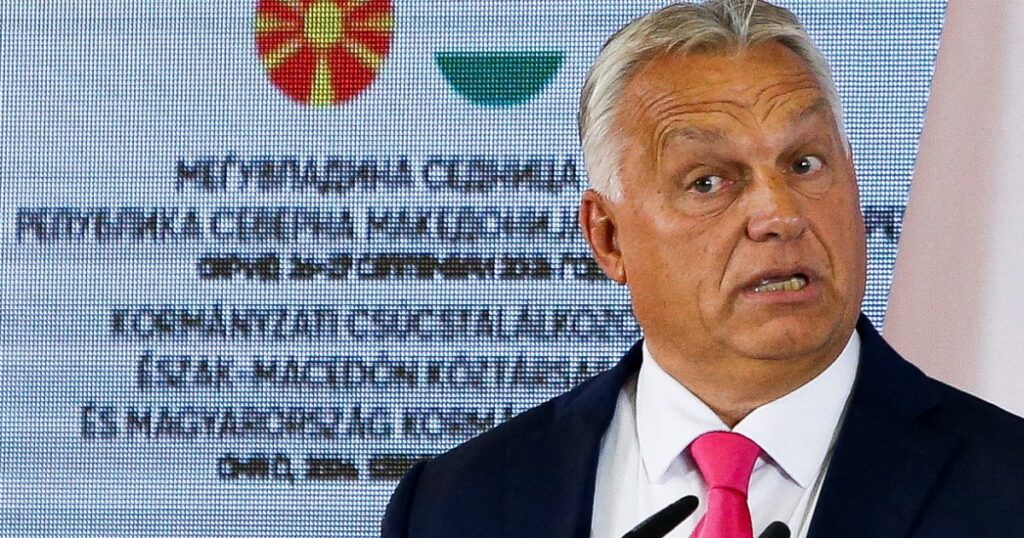
Kyiv has long called for unity among its allies on isolating Putin and said discussions on the war must include Ukraine. Ukrainian President Volodymyr Zelenskyy has criticised Hungarian Prime Minister Viktor Orban for discussing the Ukraine war in a call with Russian leader Vladimir Putin. Orban, who has maintained closer ties with Putin than other European countries throughout Russia’s war in Ukraine, said on X that the pair’s phone call on Wednesday lasted an hour and that “these are the most dangerous weeks” of the war. “No one should boost [their] personal image at the expense of unity,” Zelenskyy said on X. “We all hope that Orban at least won’t call Assad in Moscow to listen to his hour-long lectures as well,” he added, referring to Russia’s decision to grant deposed Syrian President Bashar al-Assad political asylum. Kyiv has repeatedly called for unity among its allies on isolating Putin and has said any discussions on the war must involve Ukraine. Ukrainian officials have also warned that a ceasefire in the 33-month-old war would benefit Moscow, as it could freeze current front lines with Russia holding about 20 percent of Ukrainian territory. Advertisement The Kremlin said Putin had told Orban during the phone call that Kyiv’s stance excluded the possibility of a peaceful settlement to the war. The call was initiated at the Hungarian leader’s request, the Kremlin said, and came a day after Hungary’s top diplomat said his country would forge ahead with its self-styled Ukraine “peace mission”. Orban responded to Zelenskyy’s gripe on X by saying that Hungary had proposed a “Christmas ceasefire” and a prisoner exchange but that the Ukrainian leader had “clearly rejected and ruled this out”. Orban did not offer more details about exactly when or how he had proposed such a truce, or whether the same offer was made to Putin. At the end of the Hungarian EU Presidency, we made new efforts for peace. We proposed a Christmas ceasefire and a large-scale prisoner exchange. It’s sad that President @ZelenskyyUa clearly rejected and ruled this out today. We did what we could! https://t.co/17f4tXJEsc — Orbán Viktor (@PM_ViktorOrban) December 11, 2024 Ukraine, in turn, denied that Orban discussed a Christmas truce with them. “As always, the Hungarian side did not discuss anything with Ukraine. As always, the Hungarian side did not warn [us] about its contacts with Moscow,” presidential aide Dmytro Lytvyn said in a statement. “There can be no discussions about the war that Russia wages against Ukraine without Ukraine,” Zelenskyy said on Wednesday. Orban has repeatedly called for peace talks and refused to send military aid to Ukraine since Russia launched its offensive in February 2022. Advertisement He angered fellow EU leaders in July by engaging in diplomatic talks with Russia on ending the conflict, just days after Hungary took over the bloc’s rotating six-month presidency. Adblock test (Why?)
Will the status of Syrian refugees in Europe change?

Several European countries pause Syrian asylum requests days after the al-Assad dynasty collapsed. More than a million Syrians have sought asylum in Europe in the past 13 years. But the overthrow of President Bashar al-Assad is raising questions about the future of about 100,000 refugees. At least eight nations have frozen Syrian asylum applications. What triggered the decisions? Do European governments believe Syria is safe for refugees to return? And if they do choose to go home, what lies ahead? Presenter: Bernard Smith Guests: Louise Calvey – Executive director of refugee rights charity Asylum Matters Bushra Alzoubi – Syrian refugee and human rights activist Daniel Sohege – Specialist in international refugee law and protection Adblock test (Why?)
Gov. Greg Abbott backs David Cook over Dustin Burrows in Republican fight for House speaker

Days after the Texas House GOP caucus backed Cook, Abbott made clear that he expects Republican representatives to do the same.
Asia’s frustrated young men celebrate the return of Donald Trump
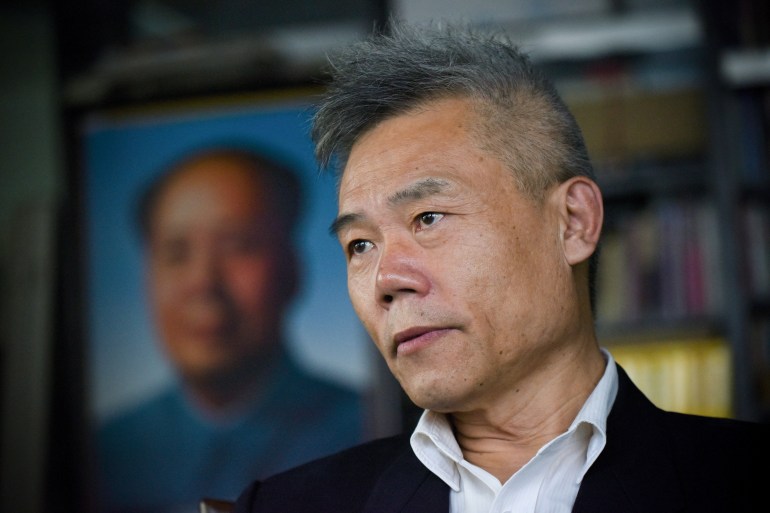
Taipei, Seoul, and Manila – Donald Trump’s popularity among young men who frequent the “manosphere” online has been widely cited as a factor in his re-election as president of the United States. After making its mark in voting booths across the US, Trump’s appeal among male influencers and their followers is reverberating much further afield. Across Asia, where countries such as China and South Korea are experiencing a growing gender divide that mirrors similar trends in the West, Trump’s return to the most powerful political office on the planet has been celebrated in male-dominated spaces online. “Honestly, I really admire Trump, because he is not afraid to face his battles head-on,” zhtttyzhttty, a prominent influencer who discusses the challenges facing men on China’s social media platform Weibo, posted the day after Trump’s victory. Sima Nan, an ultranationalist blogger who has more than 44 million followers on social media, welcomed Trump’s win despite his frequent criticism of the US, citing his “transactional mentality” as a positive. Advertisement “To put it bluntly, Trump is a trader. He calls himself a great trader. Trump will cut ties with Taipei and trade with Beijing,” Nan said on Weibo, referring to Beijing’s stance that self-governing Taiwan is part of its territory. “Everything is for sale for him. The key is the price.” Social commentator and intellectual Sima Nan looks on during an interview in Beijing [Wang Zhao/AFP] On Chinese internet forums where many ordinary young men congregate, praise for Trump, who won 49 percent of male voters aged 18-29 in the US election, has been a common theme both before and since the November 5 vote. “Trump is a businessman, and businessmen usher in the best of times,” one Weibo user wrote after Trump’s re-election. “Only Trump tells you everything with certainty and clarity.” When photos of Trump raising his fist moments after being struck in the ear by a would-be assassin’s bullet ricocheted around the world in July, internet users marvelled at the Republican candidate’s act of defiance. “What an amazing photo,” one Weibo user said. “Trump is so strong,” he continued. The admiration for Trump among some young Chinese stands in contrast to the president-elect’s aggressive rhetoric and policies towards their country. Trump has for years cast China as a threat, accusing it of stealing American jobs and blaming it for unleashing the COVID-19 pandemic on the world. During his election campaign and since, he has threatened to slap steep tariffs on Chinese imports – a move that could potentially inflict huge damage to Chinese companies and the Chinese economy. Advertisement As in other parts of the world, young Chinese men report holding increasingly conservative views relative to their female peers. According to an analysis of Chinese survey data published in the International Journal of Comparative Sociology last year, young Chinese women were more than twice as likely to express egalitarian views than their male peers. And while young Chinese women had far more egalitarian attitudes than previous generations of women, according to the analysis, young men had become only slightly more egalitarian over the same timeframe. Qian Huang, an assistant professor who studies digital culture at the University of Groningen in the Netherlands, said she was not surprised by the support for Trump from the Chinese internet despite his hawkish stance towards Beijing. “It’s quite similar to 2016 when he was first elected, but it has intensified and more people have joined the conversations,” Huang told Al Jazeera. “Trump projects certain masculine traits that many modern men admire and associate with success, and that includes men outside China as well.” Young Trump supporters react as the Republican arrives for a campaign rally in Greenville, North Carolina on October 21, 2024 [Evan Vucci/AP] Whether in the West or Asia, the “manosphere” is not precisely defined beyond being a segment of the internet that is dominated by men and appeals to their interests. Discussions among male influencers and their followers range from misogynistic diatribes about women and critiques of feminism, to complaints about the struggles of men and advice about fitness and dating. Advertisement In South Korea, Jang Min-seo, who runs RedPillKorea, a YouTube channel focused on dating culture and gender issues that takes inspiration from British-American influencer and self-proclaimed misogynist Andrew Tate, welcomed Trump’s victory, viewing it as a win for freedom of speech and male assertiveness. “I think Trump won the election because many Americans wanted a leader who had a bulldozer personality when it came to doing what they promised,” Jang, 35, told Al Jazeera. As for South Korean President Yoon Suk-yeol, whose political future is in doubt following his short-lived declaration of martial law last week, Jang likened the politician to US President Joe Biden, who “doesn’t really know what he’s doing”. “I don’t have any expectations for South Korea’s leaders as they’re so incapable by and large,” Jang said. “Most South Korean politicians are limited to roles like inciting the feminism and PC movement. Authentic conservative politicians who get the job done seem to have disappeared with the fall of the military regime.” Eight in 10 South Koreans in their 20s believe that gender conflict is a serious issue, with more than half of those saying that gender issues affected how they voted in the 2022 presidential election, according to a study conducted by the daily newspaper Chosun Ilbo and Seoul National University. Many young South Korean men now believe that women’s march towards equality, including one of Asia’s most visible #MeToo movements, has come at their expense, a perception that Yoon tapped into during his election campaign by pledging to abolish the Ministry of Gender Equality and Family. Advertisement In a 2021 survey carried out by the Seoul Shinmun newspaper and Hyundai Research Institute, nearly 70 percent of men said that reverse discrimination was a bigger problem than discrimination against women. South Korean women attend a rally to mark International Women’s Day in downtown Seoul on March 8, 2024 [Kim Jae-Hwan/SOPA Images/LightRocket via Getty Images] “The ministry
Brazil’s President Lula to undergo additional surgery for brain bleed

Hospital says that the Brazilian leader is doing well as he prepares for his second surgery of the week following a fall at home. Brazilian President Luiz Inacio Lula da Silva is set to undergo a second medical procedure to address bleeding on the surface of his brain, according to medical staff at a Brazilian hospital. Doctors at the Sirio-Libanes hospital in Sao Paulo, Brazil, announced on Wednesday that the minimally invasive procedure would take place the following morning. Called a middle meningeal artery embolisation, the procedure allows medical professionals to enter a patient’s blood vessels using small tubes. The aim is to insert a small blockage to prevent bleeding from the artery, located on the outside of the brain. This new procedure follows a two-hour surgery Lula, 79, underwent on Tuesday to treat health problems stemming from a fall at home in late October. He had been rushed to the hospital overnight. After Tuesday’s surgery, the Brazilian leader was scheduled to remain in intensive care for a period of about 48 hours. Despite the new procedure on Thursday, doctors emphasised Lula was lucid and recovering. Advertisement “He underwent physiotherapy, walked and received visits from family members,” the doctors said in a statement, noting that he had “spent the day well” and is in good condition. Lula’s personal doctor, Roberto Kalil Filho, also told reporters on Wednesday that the procedure is “relatively simple” and “low risk”, taking no more than one hour. “We waited to see that the president was recovering well before deciding to go ahead with the procedure,” he said. Nevertheless, Lula’s recent medical interventions have raised concerns about his health. Lula, who is currently about halfway through his current term as president, is considered Brazil’s oldest sitting president. He was sworn in for his third term in January 2023, at age 77 — and now, at 79 years old, he surpassed the previous record holder, Michel Temer, who was 78 when he left office. Doctors say Lula will return to the capital of Brasilia at the beginning of next week, with no aftereffects anticipated following the two procedures. Lula’s vice president, Geraldo Alckmin, has been recalled to Brasilia to fill in for official duties. Meanwhile, a gathering of supporters met in Brasilia on Tuesday to offer their support for the popular leftist president, who previously served as president from 2003 through 2011. One man dressed as Santa Claus held up a sign of Lula with the caption “Saúde presidente” — a wish for good health, written in Portuguese. Adblock test (Why?)
UN General Assembly demands ‘immediate’ ceasefire in Gaza, supports UNRWA
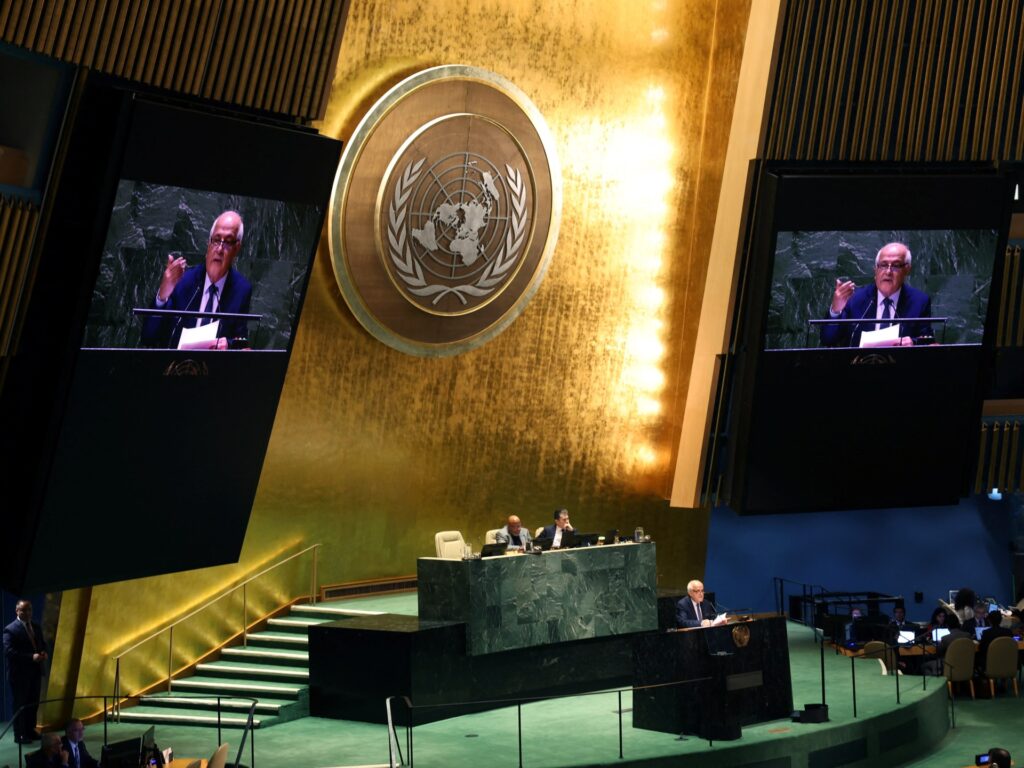
The United Nations General Assembly has voted overwhelmingly to demand an immediate ceasefire in the Gaza Strip and expressed support for the work of the UN’s agency for Palestinian refugees (UNRWA). The assembly on Wednesday passed a resolution demanding an immediate, unconditional and permanent ceasefire in Gaza, which was adopted with 158 votes in favour from the 193-member assembly and nine votes against with 13 abstentions. A second resolution expressing support for UNRWA and deploring a new Israeli law that would ban the UN agency’s operations in Israel was carried with 159 votes in favour, nine against and 11 abstentions. That resolution demands that Israel respect UNRWA’s mandate and calls on the Israeli government “to abide by its international obligations, respect the privileges and immunities of UNRWA and uphold its responsibility to allow and facilitate full, rapid, safe and unhindered humanitarian assistance in all its forms into and throughout the entire Gaza Strip”. Both votes culminated two days of speeches at the UN where speaker after speaker called for an end to Israel’s 14-month war on the Palestinian territory that has killed at least 44,805 people – mostly Palestinian women and children – and wounded 106,257. Advertisement “Gaza doesn’t exist any more,” Slovenia’s UN Ambassador Samuel Zbogar told the General Assembly meeting. “It is destroyed. Civilians are facing hunger, despair and death,” he said. “There is no reason for this war to continue. We need a ceasefire now. We need to bring hostages home now,” he added. Algeria’s deputy UN ambassador Nacim Gaouaoui addressed the world’s inability to stop the war in Gaza: “The price of silence and failure in the face of the Palestinian tragedy is a very heavy price, and it will be heavier tomorrow.” Al Jazeera’s Gabriel Elizondo, reporting from UN headquarters in New York, said “the message is clear with these two resolutions”. “Number one, UNRWA needs to be protected and their mandate needs to be protected and bolstered. Of course, Israel is trying to destroy UNRWA. They’ve made that very clear for many months now,” Elizondo said. “And the second message that it sends is the overwhelming majority of the world is calling for, again, an immediate ceasefire in Gaza,” he said. Israel, US votes against UN resolution Israel and its staunchest ally, the United States, were in a tiny minority of countries and their representatives speaking and voting against the resolutions at the UN. US Deputy UN Ambassador Robert Wood reiterated Washington’s opposition to the ceasefire resolution in advance of the vote and criticised the Palestinians for again failing to mention Hamas’s October 7, 2023, attack on Israel, which killed an estimated 1,139 people and saw more than 200 Israelis taken captive in Gaza. Advertisement “At a time when Hamas is feeling isolated due to the ceasefire in Lebanon, the draft resolution on a ceasefire in Gaza risks sending a dangerous message to Hamas that there’s no need to negotiate or release the hostages,” he said. In advance of the UN vote, Israel’s UN Ambassador Danny Danon accused supporters of the resolutions of complicity with Hamas. “By demanding a ceasefire today without addressing the hostages, this assembly will once again side with those who weaponise human suffering,” Danon said. While UN Security Council resolutions are legally binding, General Assembly resolutions are not, though they do reflect world opinion. The Palestinians and their supporters went to the General Assembly after the US vetoed a Security Council resolution on November 20 demanding an immediate Gaza ceasefire. The language of the ceasefire resolution adopted by the assembly is the same as the text of the vetoed Security Council resolution, and demands “an immediate, unconditional and permanent ceasefire to be respected by all parties,” while also reiterating a “demand for the immediate and unconditional release of all hostages”. Palestinian UN Ambassador Riyad Mansour said last week, during the first day of debate in the assembly’s special session on the issue, that Gaza is “the bleeding heart of Palestine”. “The images of our children burning in tents, with no food in their bellies and no hopes and no horizon for the future, and after having endured pain and loss for more than a year, should haunt the conscience of the world and prompt action to end this nightmare,” Mansour said. Advertisement Adblock test (Why?)
Federal appeals court upholds $14.25 million fine against Exxon for pollution in Texas
A 2021 ruling found the oil giant committed more than 16,000 violations of the Clean Air Act at its Baytown refinery and plant.
California reparations bills killed as Newsom sought to avoid appearing ‘too progressive’
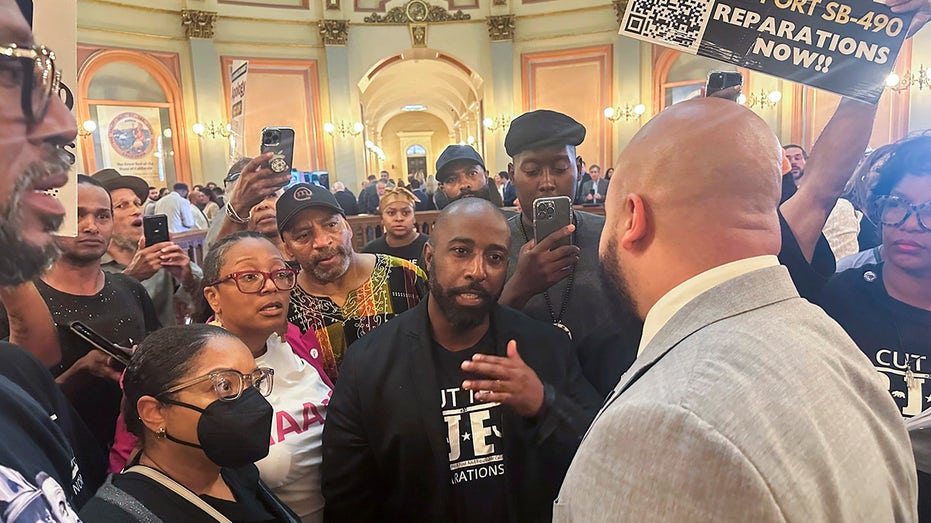
Reparations activists in California hope their snubbed bills that were shelved in September will be re-introduced by a legislator during the next special session that Gov. Gavin Newsom called in January. “That is one of the primary demands or commands from the community and reparations leaders is for a legislator, it doesn’t even have to be a black legislator, but a legislator to reintroduce those two bills that failed,” California Reparations Task Force Chair Kamilah Moore told Fox News Digital in an interview this week. The bills, SB 1403 and SB 1331, would have established the California American Freedman’s Affairs Agency to oversee reparations programs and create a dedicated fund for implementing reparations policies, respectively. Both were snubbed after backers said the bills would not move forward and be signed by Newsom. PROTESTS ERUPT AT CALIFORNIA STATE CAPITOL AFTER PAIR OF REPARATIONS BILLS SHELVED “I think the reason for Newsom was probably political, like, he didn’t think that these reparations would get so serious so fast,” Moore said. “And then this particular election year when Kamala [Harris] was running for president, and you can’t look too progressive in this political environment we’re in.” The two bills, authored by members of the California Legislative Black Caucus, were pivotal for the reparations task force to carry out its atoning for what supporters said was a legacy of racist policies that drove disparities for Black people, from housing to education to health. The Democrat-led California legislature passed a spate of other bills aimed at remedying past racial injustices, but none of them would provide direct payments to African Americans. “I feel like the caucus and even Newsom were supportive of these bills, and there’s evidence of that. The Black Caucus wrote that letter in June wanting to give $6 million to their friends, the Black freedom Fund, which is problematic,” Moore said. “But the letter also said they wanted to give $6 million to the reparations agency, but then at the last minute, in August, they decided to kill the Reparations Agency Fund bill.” NEWSOM RAILS AGAINST TRUMP’S 25% TARIFF PLAN DURING SOUTHERN BORDER VISIT: ‘IT’S A BETRAYAL’ At the time, then-Sen. Steven Bradford, who is now termed out, said the bills didn’t move forward out of fear they wouldn’t make it past Newsom’s desk. “We’re at the finish line, and we as the Black Caucus owe it to the descendants of chattel slavery, to Black Californians and Black Americans to move this legislation forward,” Bradford said, urging his colleagues to reconsider the bills. When the bills got pulled, a group of protesters were outraged inside the Sacramento Capitol after being promised the bills would receive time. State Republican Assemblyman Bill Essayli accused Democrats in a post on X of going “into hiding” and refusing to bring the bills up for a vote when it came time to pass them despite “promising to pay direct cash reparations to Americans who have been harmed by slavery” for years. Essayli talked to supporters in the Capitol that day and clarified that he did not support California taxpayers paying for the wrongs of slave states but “believed there should be a debate and a recorded vote on the issue.” He then urged the legislature to bring the bills for a floor debate. “I don’t think you can constitutionally justify cash payments based on race,” Essayli told Fox News Digital in an interview this week. “[President-elect] Trump created opportunity zones, which resulted in direct investments into minority communities, so I think there’s other [ways] we can get resources and investments to those who have been harmed by racist policies and slavery long ago.” CALIFORNIA’S UNEMPLOYMENT BENEFITS SYSTEM ‘BROKEN’ WITH $20B OWED TO FEDS IN LOAN DEBT: REPORT There are two new reparations bills on the California docket that were introduced during the Dec. 2 special session. AB 7, introduced by Democrat Assemblymembers Isaac Bryan and Tina McKinnor, proposes allowing California’s higher education institutions, including the California State University, the University of California, independent colleges and private postsecondary institutions, to consider giving admissions preference to applicants who are descendants of American slavery. AB 57, introduced by McKinnor, seeks to allot a portion of California’s Home Purchase Assistance Program funds for descendants of slaves. Newsom has remained silent on most reparations bills introduced this year but approved a nearly $300 billion budget in June, which included up to $12 million for reparations. The budget did not detail which proposals the funds would support, and his administration has expressed opposition to some of the measures. However, he signed some reparations-related bills, including a “formal apology for California’s historical role in the perpetuation of slavery and its enduring legacy.” “The State of California accepts responsibility for the role we played in promoting, facilitating, and permitting the institution of slavery, as well as its enduring legacy of persistent racial disparities,” Newsom said in a statement in September. “Building on decades of work, California is now taking another important step forward in recognizing the grave injustices of the past – and making amends for the harms caused.” Fox News Digital’s Bradford Betz and the Associated Press contributed to this report.
Conservatives tout victory after stopping last-minute Schumer push to confirm key agency head: ‘Outstanding’
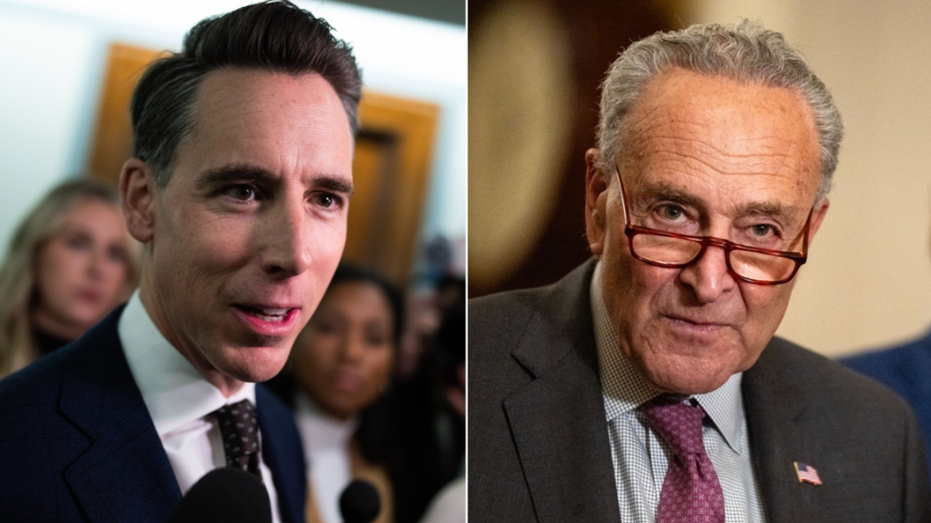
Republicans and conservatives on social media are taking a victory lap after Senate Democrats failed in a last-minute attempt to keep control of the National Labor Relations Board (NLRB) on Wednesday after narrowly losing a vote to end debate on re-appointing the board’s chair, Lauren McFerran. Outgoing Democrat Senate Majority Leader Chuck Schumer had hoped to confirm McFerran, a President Biden pick, to a new five-year term that would have given Democrats control of the influential agency until at least 2026, but the vote failed, 50-49, with independent Sens. Joe Manchin of West Virginia and Kyrsten Sinema of Arizona voting against it. The vote, which conservatives had railed against for days by arguing that President-elect Trump should decide the pick after his November election victory, was celebrated by conservatives. “Working Americans just delivered a massive victory for President Trump and his pro-worker polices, so why on earth would we let Biden choose more NLRB nominees?” Sen. Josh Hawley, R-Mo., told Fox News Digital in a statement. “I’m glad we didn’t, and I look forward to working with President Trump to support policies and nominees that are good for working families and all Americans.” PROGRESSIVE DEMS RAGE AT BIDEN FOR GIVING TRUMP THE SPOTLIGHT DURING FINAL WEEKS IN OFFICE “Lauren McFerran’s abysmal record running the Biden-Harris NLRB includes undermining freelancers, crushing businesses of all sizes, and greenlighting vulgar union harassment of American workers,” Tom Hebert, director of competition and regulatory policy for Americans for Tax Reform, told Fox News Digital in a statement. “Chuck Schumer tried to put the Trump-Vance NLRB under Democrat control by sneaking McFerran’s renomination through the Senate, anticipating Republican absences. Fortunately for American workers and businesses, Republicans showed up and blocked Schumer’s scheme, ensuring the Trump-Vance NLRB is controlled by pro-worker Republicans instead of anti-worker Democrats.” BIDEN, DEMOCRATS BACK AWAY FROM BILL THAT WOULD GIVE TRUMP MORE FEDERAL JUDGES TO APPOINT “I am glad the Senate rejected Democrats’ partisan attempt to deny President Trump the opportunity to choose his own NLRB nominees and enact a pro-America, pro-worker agenda with the mandate he has from the American people,” Sen. Bill Cassidy, R-La., posted on X. “Outstanding work @SenateGOP and free thinkers @SenatorSinema and @Sen_JoeManchin!” Independent Women’s Voice senior policy analyst Carrie Sheffield posted on X. “Another antagonist of @elonmusk and free speech collapses. Paving the way for @realDonaldTrump to fix harmful policies. Great work.” A point of frustration for Republicans was the fact that Health, Education, Labor, and Pensions Committee Chair Bernie Sanders denied a request from Cassidy to hold a public hearing on McFerran before advancing her. McFerran’s nomination has been waiting for consideration since August. In 2021, McFerran’s NLRB ordered Tesla to direct Musk to delete a tweet they said was damaging to a unionization effort at Tesla in a move that was eventually overturned by the U.S. Appeals Court. “The current administration is doing everything possible to prevent government efficiency, but @DOGE is inevitable,” Tesla and Space X CEO Elon Musk posted on X before the vote in response to a post lamenting the Democrat push to advance McFerran. Unlike most similar agencies, members of the NLRB cannot be removed by the president at will simply based on policy goals or changing administrations. “Any member of the Board may be removed by the President, upon notice and hearing, for neglect of duty or malfeasance in office, but for no other cause,” the NLRB website states. In response to the McFerran vote, Democrats pulled the cloture vote for Republican NLRB nominee Joshua Ditelberg, giving Trump the opportunity to fill two seats if nothing changes before inauguration day. Schumer filed cloture on McFerran’s nomination on Monday, setting up a vote on Wednesday. In floor remarks, the New York Democrat did not acknowledge the lame-duck nature of the vote, telling his colleagues, “If you truly care about working families, if you care about fixing income inequality in America, then you should be in favor of advancing today’s NLRB nominees. You can’t say you are for working families, then go and vote ‘no’ today, because the NLRB protects workers from mistreatment on the job and from overreaching employers.” In a statement after the vote, Schumer said, “It is deeply disappointing, a direct attack on working people, and incredibly troubling that this highly qualified nominee – with a proven track record of protecting worker rights – did not have the votes.” Fox News Digital’s Julia Johnson contributed to this report.

